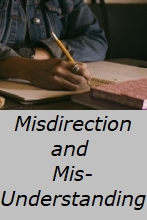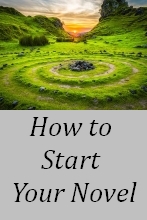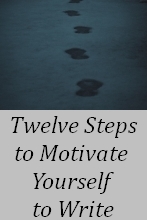How to Succeed as a Vella Writer
By: Ken Brown
Published: 7/30/2021
Do You have the Chops to Write a Serial?

Have you heard of Amazon's new service for authors, called Vella? Do you like to write short stories or serial stories? Vella may be the right marketplace for you.
Vella is an Amazon platform for authors that like or can write serial stories. What are serials? Stories of 600 to 5000 words that authors write each day, week or month depending on your ability to write fast. Can you write consistently week after week, coming up with a continuing plot with the same characters and world?
What does it take to be a serial author?
I think it's similar to the stories written long ago in the heyday of pulp fiction. Back in the early part of the twentieth century there were authors who wrote for magazines and anthology collections to earn their income. It was hard work, with little chance for most writers. You had to get your foot in the door usually from a recommendation from a friend. You had to be consistent, because back then, if you didn't write and sell your work, then you didn't eat.
Most early authors were in studio apartments with little more than a typewriter and paper. The magazine would put out a call for 500 to 25,000 word stories and if you wanted to pay your rent, you put your butt in the chair until you got your story completed.
If you want to earn a long time income with Vella, you'll have to do the same thing.
Here's what it takes to Succeed Writing Serials.
I'm taking this list from James Scott Bell's classic non-fiction book, How to Write Pulp Fiction [Affiliate Link]. He recommends becoming as good as possible in these six areas of writing. Work on your craft so you can earn a professional's salary instead of someone that writes over the weekend or when the muse motivates them.
A good pulp fiction story has six critical features:
- Plot Centric
- Easy to Read
- Fast-Paced
- Colorful Characters
- Snappy Dialogue
- Intriguing Settings
Plot Centric
Your story has to have direction and purpose. You can write a story that hops about willy-nilly, but it won't be as strong as a central point of view character that wants something and an antagonist that will do everything in their power to prevent the protagonist from succeeding at reaching that goal.
The plot should have a sequence of events from point A to point Z like following a map to get from Chicago to Denver. The heroine in your story will want to move from point A to point B, but the villain gets in her way and forces her toward point D first. But she can't get to her destination without going to point B first, so she doubles back or circles around the obstacle to reach her next destination.
I see a good plot like the airlines. You want to go from Chicago to Miami, Florida. You find many flights at O'Hare that'll take you to Miami, but some are already booked, too expensive, can't sit with your spouse, or don't leave at a convenient time for you. Then you find the perfect flight only to realize that to get to Miami you have to travel through Minneapolis and Dallas first. The airlines are like your antagonist, always forcing you out of your path to victory.
Easy to Read
Serials and pulp fiction shouldn't be literary novels. You don't have time to feel the muse take the story. You have to write. Write fast to survive. The kids want food and shoes and you're their only source to get those things. You must write. Do you attend that party or do you write? You write.
You write a story that doesn't require the reader to spend a lot of time looking up ten-dollar words when a ten-cent word will keep the story moving and motivate the reader to keep reading late at night and wanting more.
Fast-Paced
Pulp fiction requires a fast paced story. You can't languish with descriptions that carry on for three pages. Instead of using four words to describe a character find that one word that encapsulates a feeling about the character. You're still going to show and not tell, but you're going to master the language of writing.
The software, ProWritingAid, has an indicator for passive verbs. A passive verb will slow down a story for the reader. You'll find that you use three or four words to convey the same thing that one word will do better accomplish. Get to the action, get to the plot, give us feeling, smells, touch, sounds and tastes, but don't linger.
Colorful Characters
A good serial has colorful characters. Find that right mix of characters that make the story interesting. They don't all sound alike. They don't always agree. A good mix of characters will argue and have strong reasons to back their position. Janet Evanovich in her Stephanie Plum novels has characters that form pictures in your mind. She has found characters that aren't stereotypes, but feed on the stereotypes the reader has about people.
Whether it's the clothes they wear, their language, beliefs, reactions to events or desires, she brings them to life on the page adding humor or suspense easily. Your characters can't be cardboard cutouts of yourself. You have to dig deep and find that character who will be a friend to your protagonist, but cause tension and conflict by giving out too much information, disagreeing at the wrong time or taking actions that force the heroine to rescue the character or to change plans because of their actions.
Snappy Dialogue
Dialogue is important in pulp fiction and strong dialogue can move a story along faster than a canoe on rapids. Robert B Parker was a master of dialogue. Sometimes it was sarcasm, but other times the words his characters use gets the reader into the story and helps them feel the emotion of the scene.
Your characters won't be talking about the weather or the food their eating. They'll be using dialogue like an Olympic fencer. It'll be snappy and quick. You'll remove anything that doesn't sell the scene. Go back to those passive verbs and whack them.
Intriguing Settings
An intriguing setting makes the story more interesting. I read a friend's manuscript recently and almost every scene occurred in a restaurant or at a kitchen table. She put the final climatic scene of her romance story in the front seat of a car at a restaurant parking lot. Sure us normal people spend a lot of time eating, but the story can be better if there is action in the scene.
Use the setting like a third character in the scene. If you want the reader to feel claustrophobic, put the scene in a confined space. If the scene calls for a heated argument, place the scene in the library. Let's see if the desire to be quiet upsets the person's normal reaction to yell and scream during an argument.
Go ahead and write the scene that first comes to mind. Then go back and say, what's the worst possible setting for this scene that will cause my heroine and the reader to feel the most uncomfortable?
Write Fast and Consistently
If you're writing a serial, then you need to produce a story every week. Can you write on demand like that? You don't want to get a good group of superfans that can't wait for the next "chapter" in the story only to find out this week you were too tired or lazy to write. Nothings worse than expecting to watch your favorite show on TV and find out its not broadcast this week. Arggh.
The good news is you can write many episodes in advance and release them at the appropriate time.
Review
There you have it. Create a great plot, keep the action moving, find interesting settings, write snappy dialogue with personality from colorful characters and make it easy to read. How much money can you make with Vella? I don't know if there is enough data points to predict that, but like any syndicated content, if you're good and consistent then your fans will wait anxiously for the next installment.
Write everyday.
Ken Brown
Adgitize is a participant in the Amazon Services LLC Associates Program, an affiliate advertising program designed to provide a means for sites to earn advertising fees by advertising and linking to Amazon.com.
We have an affiliate relationship and/or another material connection to the providers of goods and services mentioned in these posts and may be compensated when you purchase these affiliate products.
You should always perform due diligence before buying goods or services from anyone via the Internet or offline.
Photo by Kai Pilger on Unsplash.



